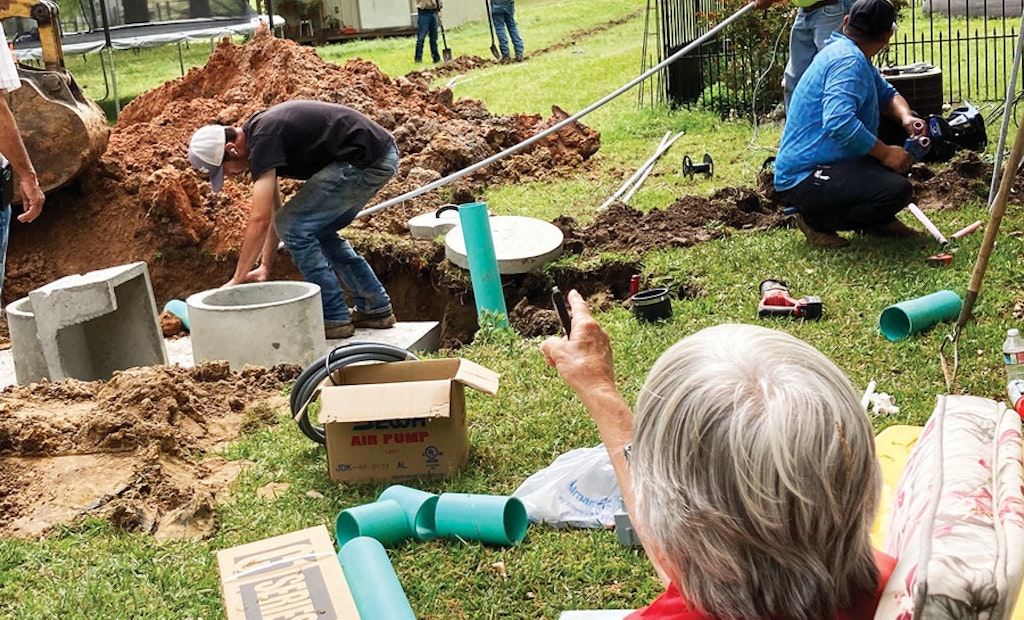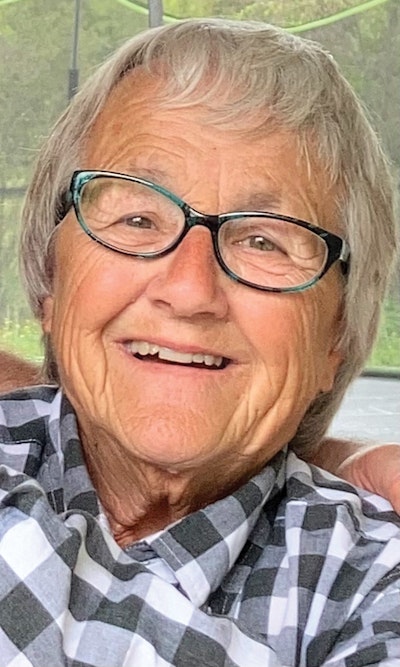
After 27 years in the industry, Alma Tippins does most of her work from a lawn chair, supervising her team of contractors. (Photos courtesy of Alma Tippins)
Every once in a while I get a reminder about a big challenge to the onsite industry — the aging of our workforce. It happened again recently when the phone rang and Alligator Annie was on the other end of the line, talking a blue streak about big plans to sell her business...






